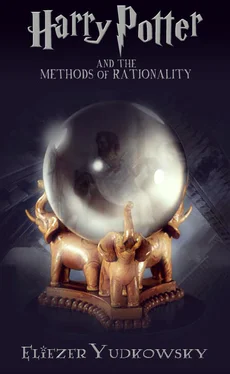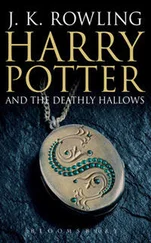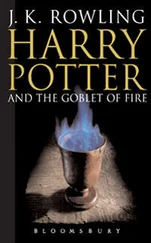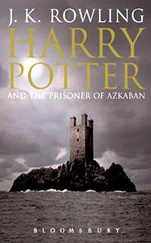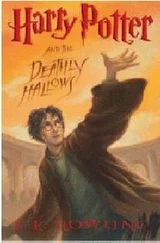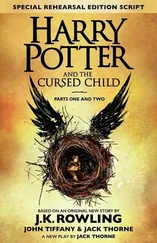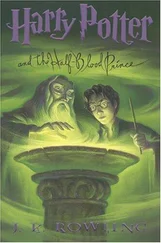At this point the Deputy Headmistress interjected something about how if he was she would figure out how to kill a hat, which odd remark Harry let pass without comment, though the salesgirl seemed to be having a sudden coughing fit.
"- I am going to be in Ravenclaw. And if you really think that I'm planning to do something dangerous, then, honestly, you don't understand me at all. I don't like danger, it is scary. I am being prudent . I am being cautious . I am preparing for unforeseen contingencies . Like my parents used to sing to me: Be prepared! That's the Boy Scout's marching song! Be prepared! As through life you march along! Don't be nervous, don't be flustered, don't be scared - be prepared! "
(Harry's parents had in fact only ever sung him those particular lines of that Tom Lehrer song, and Harry was blissfully unaware of the rest.)
Professor McGonagall's stance had slightly softened - though mostly when Harry had said that he was heading for Ravenclaw. "What sort of contingency do you imagine this kit might prepare you for, young man? "
"One of my classmates gets bitten by a horrible monster, and as I scrabble frantically in my mokeskin pouch for something that could help her, she looks at me sadly and with her last breath says, 'Why weren't you prepared?' And then she dies, and I know as her eyes close that she won't ever forgive me -"
Harry heard the salesgirl gasp, and he looked up to see her staring at him with her lips pressed tight. Then the young woman whirled and fled into the deeper recesses of the shop.
What...?
Professor McGonagall reached down, and took Harry's hand in hers, gently but firmly, and pulled Harry out of the main street of Diagon Alley, leading him into an alleyway between two shops which was paved in dirty bricks and dead-ended in a wall of solid black dirt.
The tall witch pointed her wand at the main street and spoke, "Quietus " she said, and a screen of silence descended around them, blocking out all the street noises.
What did I do wrong...
Professor McGonagall turned to regard Harry. She didn't have a full adult Wrongdoing Face, but her expression was flat, controlled. "You must remember, Mr. Potter," she said, "that there was a war in this country not ten years ago. Everyone has lost someone, and to speak of friends dying in your arms - is not done lightly."
"I - I didn't mean to -" The inference dropped like a falling stone into Harry's exceptionally vivid imagination. He'd talked about someone breathing their last breath - and then the salesgirl had run away - and the war had ended ten years ago so that girl would have been at most eight or nine years old, when, when, "I'm sorry, I didn't mean to..." Harry choked up, and turned away to run from the older witch's gaze but there was a wall of dirt blocking his way and he didn't have his wand yet. "I'm sorry, I'm sorry, I'm sorry! "
There came a heavy sigh from behind him. "I know you are, Mr. Potter."
Harry dared to peek behind him. Professor McGonagall only seemed sad, now. "I'm sorry," Harry said again, feeling wretched. "Did anything like that happen to -" and then Harry shut his lips and slapped a hand over his mouth for good measure.
The older witch's face grew a little sadder. "You must learn to think before you speak, Mr. Potter, or else go through life without many friends. That has been the fate of many a Ravenclaw, and I hope it will not be yours."
Harry wanted to just run away. He wanted to pull out a wand and erase the whole thing from Professor McGonagall's memory, be back with her outside the shop again, make it didn't happen -
"But to answer your question, Mr. Potter, no, nothing like that has ever happened to me. Certainly I've watched a friend breathe their last, once or seven times. But not one of them ever cursed me as they died, and I never thought that they wouldn't forgive me. Why would you say such a thing, Mr. Potter? Why would you even think it?"
"I, I, I," Harry swallowed. "It's just that I always try to imagine the worst thing that could happen," and maybe he'd also been joking around a little but he would rather have bitten off his own tongue than say that now.
"What?" said Professor McGonagall. "But why?"
"So I can stop it from happening!"
"Mr. Potter..." the older witch's voice trailed off. Then she sighed, and knelt down beside him. "Mr. Potter," she said, gently now, "it's not your responsibility to take care of the students at Hogwarts. It's mine. I won't let anything bad happen to you or anyone else. Hogwarts is the safest place for magical children in all the wizarding world, and Madam Pomfrey has a full healer's office. You won't need a healer's kit at all, let alone a five-Galleon one."
"But I do! " Harry burst out. " Nowhere is perfectly safe! And what if my parents have a heart attack or get in an accident when I go home for Christmas - Madam Pomfrey won't be there, I'll need a healer's kit of my own -"
" What in Merlin's name..." Professor McGonagall said. She stood up, and looked down at Harry an expression torn between annoyance and concern. "There's no need to think about such terrible things, Mr. Potter!"
Harry's expression twisted up into bitterness, hearing that. "Yes there is! If you don't think, you don't just get hurt yourself, you end up hurting other people!"
Professor McGonagall opened her mouth, then closed it. The witch rubbed the bridge of her nose, looking thoughtful. "Mr. Potter... if I were to offer to listen to you for a while... is there anything you'd like to talk to me about?"
"About what?"
"About why you're convinced you must always be on your guard against terrible things happening to you."
Harry stared at her in puzzlement. That was a self-evident axiom. "Well..." Harry said slowly. He tried to organise his thoughts. How could he explain himself to a Professor-witch, when she didn't even know the basics? "Muggle researchers have found that people are always very optimistic, compared to reality. Like they say something will take two days and it takes ten days, or they say it'll take two months and it takes over thirty-five years. For example, in one experiment, they asked students for times by which they were 50% sure, 75% sure, and 99% sure they'd complete their homework, and only 13%, 19%, and 45% of the students finished by those times. And they found that the reason was that when they asked one group for their best-case estimates if everything went as well as possible, and another group for their average-case estimates if everything went as usual, they got back answers that were statistically indistinguishable. See, if you ask someone what they expect in the normal case, they visualise what looks like the line of maximum probability at each step along the way - everything going according to plan, with no surprises. But actually, since more than half the students didn't finish by the time they were 99% sure they'd be done, reality usually delivers results a little worse than the 'worst-case scenario'. It's called the planning fallacy, and the best way to fix it is to ask how long things took the last time you tried them. That's called using the outside view instead of the inside view. But when you're doing something new and can't do that, you just have to be really, really, really pessimistic. Like, so pessimistic that reality actually comes out better than you expected around as often and as much as it comes out worse. It's actually really hard to be so pessimistic that you stand a decent chance of undershooting real life. Like I make this big effort to be gloomy and I imagine one of my classmates getting bitten, but what actually happens is that the surviving Death Eaters attack the whole school to get at me. But on a happier note -"
Читать дальше
